
I recently asked readers to submit questions to me they would like me to answer. If you would like to submit a question, please follow the instructions listed here.
Tony asked, “When looking back at the events when you revealed to your family and friends your loss of faith would you change any of the way you navigated that? If so, what and why?”
Come November, it will ten years since I left Christianity; ten years since I attended a public worship service; ten years since I prayed; ten years since I studied the Bible; ten years since I abandoned that which had been the hub, the center, the focus of my life.
In April 2009, I sent a letter to family, friends, and former parishioners. Here’s what I wrote:
Dear Family, Friends, and Former Parishioners,
I have come to a place in life where I can no longer put off writing this letter. I have dreaded this day because I know what is likely to follow after certain people receive it. I have decided I can’t control how others will react to this letter, so it is far more important to clear the air and make sure everyone knows the facts about Bruce Gerencser.
I won’t bore you with a long, drawn out history of my life. I am sure each of you has an opinion about how I have lived my life and the decisions I have made. I also have an opinion about how I have lived my life and decisions I made. I am my own worst critic.
Religion, in particular Baptist Evangelical and Fundamentalist religion, has been the essence of my life, from my youth up. My being is so intertwined with religion that the two are quite inseparable. My life has been shaped and molded by religion and religion touches virtually every fiber of my being.
I spent most of my adult life pastoring churches, preaching, and being involved in religious work to some degree or another. I pastored thousands of people over the years, preached thousands of sermons, and participated in, and led, thousands of worship services.
To say that the church was my life would be an understatement. As I have come to see, the Church was actually my mistress, and my adulterous affair with her was at the expense of my wife, children, and my own self-worth.
Today, I am publicly announcing that the affair is over. My wife and children have known this for a long time, but now everyone will know.
The church robbed me of so much of my life and I have no intention of allowing her to have one more moment of my time. Life is too short. I am dying. We all are. I don’t want to waste what is left of my life chasing after things I now see to be vain and empty.
I have always been known as a reader, a student of the Bible. I have read thousands of books in my lifetime and the knowledge gained from my reading and studies has led me to some conclusions about religion, particularly the Fundamentalist, Evangelical religion that played such a prominent part in my life.
I can no longer wholeheartedly embrace the doctrines of the Evangelical, Fundamentalist faith. Particularly, I do not believe in the inerrancy of Scripture nor do I accept as fact the common Evangelical belief of the inspiration of Scripture.
Coming to this conclusion has forced me to reevaluate many of the doctrines I have held as true over these many years. I have concluded that I have been misinformed, poorly taught, and sometimes lied to. I can no longer accept as true many of the doctrines I once believed.
I point the finger of blame at no one. I sincerely believed and taught the things that I did and many of the men who taught me were honorable teachers. I don’t blame those who have influenced me over the years, nor do I blame the authors of the many books I have read. Simply, it is what it is.
I have no time to invest in the blame game. I am where I am today for any number of reasons and I must embrace where I am and move forward.
In moving forward, I have stopped attending church. I have not attended a church service since November of 2008. I have no interest of desire in attending any church on a regular basis. This does not mean I will never attend a church service again, but it does mean, for NOW, I have no intention of attending church services.
I pastored for the last time in 2003. Almost six years have passed by. I have no intentions of ever pastoring again. When people ask me about this, I tell them I am retired. With the health problems that I have, it is quite easy to make an excuse for not pastoring, but the fact is I don’t want to pastor.
People continue to ask me “what do you believe?” Rather than inquiring about how my life is, the quality of that life, etc., they reduce my life to what I believe. Life becomes nothing more than a set of religious constructs. A good life becomes believing the right things.
I can tell you this…I believe God is…and that is the sum of my confession of faith.
A precursor to my religious views changing was a seismic shift in my political views. My political views were so entangled with Fundamentalist beliefs that when my political views began to shift, my Fundamentalist beliefs began to unravel.
I can better describe my political and social views than I can my religious ones. I am a committed progressive, liberal Democrat, with the emphasis being on the progressive and liberal. My evolving views on women, abortion, homosexuality, war, socialism, social justice, and the environment have led me to the progressive, liberal viewpoint.
I know some of you are sure to ask, what does your wife think of all of this? Quite surprisingly, she is in agreement with me on many of these things. Not all of them, but close enough that I can still see her standing here. Polly is no theologian, she is not trained in theology as I am. She loves to read fiction. I was able to get her to read Bart Ehrman’s book Misquoting Jesus and she found the book to be quite an eye opener.
Polly is free to be whomever and whatever she wishes. If she wants to start attending the local Fundamentalist Baptist church she is free to do so, and even has my blessing. For now, she doesn’t. She may never believe as I believe, but in my new way of thinking that is OK. I really don’t care what others think. Are you happy? Are you at peace? Are you living a good, productive life? Do you enjoy life? “Yes,” to these questions is good enough for me.
I have six children, three of whom are out on their own. For many years I was the spiritual patriarch of the family. Everyone looked to me for the answers. I feel somewhat burdened over my children. I feel as if I have left them out on their own with no protection. But, I know they have good minds and can think and reason for themselves. Whatever they decide about God, religion, politics, or American League baseball is fine with me.
All I ask of my wife and children is that they allow me the freedom to be myself, that they allow me to journey on in peace and love. Of course, I still love a rousing discussion about religion, the Bible, politics, etc. I want my family to know that they can talk to me about these things, and anything else for that matter, any time they wish.
Opinions are welcome. Debate is good. All done? Let’s go to the tavern and have a round on me. Life is about the journey, and I want my wife and children to be a part of my journey and I want to be a part of theirs.
One of the reasons for writing this letter is to put an end to the rumors and gossip about me. Did you know Bruce is/or is not_____________? Did you know Bruce believes____________? Did you know Bruce is a universalist, agnostic, atheist, liberal ___________?
For you who have been friends or former parishioners, I apologize to you if my change has unsettled you, or has caused you to question your own faith. That was never my intent.
The question is, what now?
Family and friends are not sure what to do with me.
I am still Bruce. I am still married. I am still your father, father in-law, grandfather, brother, uncle, nephew, cousin, and son-in-law. I would expect you to love me as I am and treat me with respect.
- Here is what I don’t want from you:
- Attempts to show me the error of my way. Fact is, I have studied the Bible and read far more books than many of you. What do you really think you are going to show me that will be so powerful and unknown that it will cause me to return to the religion and politics of my past?
- Constant reminders that you are praying for me. Please don’t think of me as unkind, but I don’t care that you are praying for me. I find no comfort, solace or strength from your prayers. Be my friend if you can, pray if you must, but leave the prayers in the closet. As long as God gets your prayer message, that will be sufficient.
- Please don’t send me books, tracts, or magazines. You are wasting your time and money.
- Invitations to attend your Church. The answer is NO. Please don’t ask. I used to attend Church for the sake of family but no longer. It is hypocritical for me to perform a religious act of worship just for the sake of family. I know how to find a Church if I am so inclined, after all I have visited more than 125 churches since 2003.
- Offers of a church to pastor. It is not the lack of a church to pastor that has led me to where I am. If I would lie about what I believe, I could be pastoring again in a matter of weeks. I am not interested in ever pastoring a church again.
- Threats about judgment and hell. I don’t believe in either, so your threats have no impact on me.
- Phone calls. If you are my friend you know I don’t like talking on the phone. I have no interest in having a phone discussion about my religious or political views.
Here is what I do want from you:
I want you to unconditionally love me where I am and how I am.
That’s it.
Now I realize some (many) of you won’t be able to do that. My friendship, my familial relationship with you is cemented with the glue of Evangelical orthodoxy. Remove the Bible, God, and fidelity to a certain set of beliefs and there is no basis for a continued relationship.
I understand that. I want you to know I have appreciated and enjoyed our friendship over the years. I understand that you can not be my friend any more. I even understand you may have to publicly denounce me and warn others to stay away from me for fear of me contaminating them with my heresy. Do what you must. We had some wonderful times together and I will always remember those good times.
You are free from me if that is your wish.
I shall continue to journey on. I can’t stop. I must not stop.
Thank you for reading my letter.
Bruce
As you can see, when I wrote this letter I was still hanging on to the hope that there was a deistic God of some sort. By the fall of 2009, I had abandoned any pretense of belief and I embraced the atheist moniker. I hope readers today can sense my rawness and pain as I wrote those words a decade ago.
Writing this letter was one of the most difficult things I’ve ever done in my life. I knew that my letter would cause some controversy, but I naively believed that the Christians in my life would understand and appreciate me being honest about where I was in life. The fallout was immediate. I received numerous angry, judgmental emails and letters. No one was interested in understanding my point of view. Instead, people told me I was under the control of Satan and I needed to immediately repent. A handful of people couldn’t wrap their minds around my new life, so they said I was mentally ill and needed help. One woman wrote and told me that my problem was that I was reading too many books. She advised me to only read the Bible, believing that if I did so all would be well and Pastor Bruce would return to the faith.
A close pastor friend of mine drove three plus hours from southern Ohio to pay me a visit. Afterwards, I wrote him a letter:
Dear Friend,
You got my letter.
I am certain that my letter troubled you and caused you to wonder what in the world was going on with Bruce.
You have been my friend since 1983. When I met you for the first time I was a young man pastoring a new Church in Somerset, Ohio. I remember you and your dear wife vividly because you put a 100.00 bill in the offering plate. Up to that point we had never seen a 100.00 bill in the offering plate.
And so our friendship began. You helped us buy our first Church bus (third picture below). You helped us buy our Church building (second picture below). In later years you gave my wife and me a generous gift to buy a mobile home. It was old, but we were grateful to have our own place to live in. You were a good friend.
Yet, our common bond was the Christianity we both held dear. I doubt you would have done any of the above for the local Methodist minister, whom we both thought was an apostate.
I baptized you and was privileged to be your pastor on and off over my 11 years in Somerset. You left several times because our doctrinal beliefs conflicted, you being an Arminian and I being a Calvinist.
One day you came to place where you believed God was leading you to abandon your life work, farming, and enter the ministry. I was thrilled for you. I also said to myself, “now Bill can really see what the ministry is all about!”
So you entered the ministry and you are now a pastor of a thriving fundamentalist Church. I am quite glad you found your place in life and are endeavoring to do what you believe is right. Of course, I would think the same of you if you were still farming.
You have often told me that much of what you know about the ministry I taught you. I suppose, to some degree or another, I must take credit for what you have become (whether I view it as good or bad).
Yesterday, you got into your Lincoln and drove three plus hours to see me. I wish you had called first. I had made up my mind to make up some excuse why I couldn’t see you, but since you came unannounced, I had no other option but to open and the door and warmly welcome you. Just like always…
I have never wanted to hurt you or cause you to lose your faith. I would rather you not know the truth about me than to hurt you in any way.
But your visit forced the issue. I had no choice.
Why did you come to my home? I know you came as my friend, but it seemed by the time our three-hour discussion ended our friendship had died and I was someone you needed to pray for, that I might be saved. After all, in your Arminian theology there can be no question that a person with beliefs such as mine has fallen from grace.
Do you know what troubled me the most? You didn’t shake my hand as you left. For 26 years we shook hands as we came and went. The significance of this is overwhelming. You can no longer give me the right hand of fellowship because we no longer have a common Christian faith.
Over the course of three hours you constantly reminded me of the what I used to preach, what I used to believe. I must tell you forthrightly that that Bruce is dead. He no longer exists, but in the memory of a distant past. Whatever good may have been done I am grateful, but I bear the scars and memories of much evil done in the name of Jesus. Whatever my intentions, I must bear the responsibility for what I did through my preaching, ministry style, etc.
You seem to think that if I just got back in the ministry everything would be fine. Evidently, I can not make you understand that the ministry is the problem. Even if I had any desire to re-enter the ministry, where would I go? What sect would take someone with such beliefs as mine? I ask you to come to terms with the fact that I will never be a pastor again. Does not the Bible teach that if a man desires the office of a bishop (pastor) he desires a good work? I have no desire for such an office. Whatever desire I had died in the rubble of my 25 plus year ministry.
We talked about many things didn’t we? But I wonder if you really heard me?
I told you my view on abortion, Barack Obama, the Bible, and the exclusivity of salvation in Jesus Christ.
You told me that a Christian couldn’t hold such views. According to your worldview that is indeed true. I have stopped using the Christian label. I am content to be a seeker of truth, a man on a quest for answers. I now know I never will have all the answers. I am now content to live in the shadows of ambiguity and the unknown.
What I do know tells me life does not begin at conception, that Barack Obama is a far better President than George Bush, that the Bible is not inerrant or inspired, and that Jesus is not the only way to Heaven (if there is a Heaven at all).
This does not mean that I deny the historicity of Jesus or that I believe there is no God. I am an agnostic. While I reject the God of my past, it remains uncertain that I will reject God altogether. Perhaps…
In recent years you have told me that my incessant reading of books is the foundation of the problems I now face. Yes, I read a lot. Reading is a joy I revel in. I read quickly and I usually comprehend things quite easily (though I am finding science to be a much bigger challenge). Far from being the cause of my demise, books have opened up a world to me that I never knew existed. Reading has allowed me to see life in all its shades and complexities. I can no more stop reading than I can stop eating. The passion for knowledge and truth remain strong in my being. In fact, it is stronger now than it ever was in my days at Somerset Baptist Church.
I was also troubled by your suggestion that I not share my beliefs with anyone. You told me my beliefs could cause others to lose their faith! Is the Christian faith so tenuous that one man can cause others to lose their faith? Surely, the Holy Spirit is far more powerful than Bruce (even if I am Bruce Almighty).
I am aware of the fact that my apostasy has troubled some people. If Bruce can walk away from the faith…how can any of us stand? I have no answer for this line of thinking. I am but one man…shall I live in denial of what I believe? Shall I say nothing when I am asked of the hope that lies within me? Christians are implored to share their faith at all times. Are agnostics and atheists not allowed to have the same freedom?
I suspect the time has come that we part as friends. The glue that held us together is gone. We no longer have a common foundation for a mutual relationship. I can accept you as you are, but I know you can’t do the same for me. I MUST be reclaimed. I must be prayed for. The bloodhound of heaven must be unleashed on my soul.
Knowing all this, it is better for us to part company. I have many fond memories of the years we spent together. Let’s mutually remember the good times of the past and each continue down the path we have chosen.
Rarer than an ivory-billed woodpecker is a friendship that lasts a lifetime. 26 years is a good run.
Thanks for the memories.
Bruce
I saw my former friend a couple of years ago at the funeral of an ex-parishioner. The family had asked me to conduct the funeral. We traded pleasantries and went our separate ways. Whatever friendship we once had was gone.
Polly’s family — which included, at the time, three Independent Fundamentalist Baptist (IFB) preachers, an IFB missionary, and an IFB evangelist — said nothing to me, but I heard all sorts of negative stuff through the family grapevine. One of the aforementioned preachers did contact me via email. We had an honest, friendly discussion; that is, until the family patriarch told him to stop talking to me. He, of course, complied. Polly’s parents (her dad is a retired IFB pastor) took the “we are praying for you” approach. To this day, her parents have never talked to us about why we left Christianity. I do know they have, in the past, read my blog.
I am often asked about how my children responded to my deconversion. Keep in mind that I was a pastor their entire lives. They spent thousands of hours in church. They also had a firsthand look at the ugly underbelly of Evangelical Christianity. Over the years, I have had varying degrees of discussion with my children about why I left Christianity. For a time, some of them were confused. Imagine your dad being a pastor your entire life, and then one day he says, “I am no longer a Christian!” For a time, some of my children didn’t know what to do with their new-found freedom. I was criticized for “cutting my children free.” I was told that this was cruel; that I should have provided them support and guidance. Perhaps. At the time, I wanted them to have the same freedom I had; the freedom to walk the path of life without Dad saying, “this is the path, walk this way.” I leave it to my children to tell their own stories. I can say this: none of them is Evangelical. And for this I am grateful. The curse has been broken.
What about Polly? As with my children, I can’t and won’t speak for Polly. She has a story to tell, and perhaps she will one day tell it. I can say that Polly and I walked together out the back door of the church, and neither of us believes in God. Our primary difference, of course, is that I am an outspoken Evangelical-turned-atheist, whereas Polly — consistent with her quiet, reserved nature — prefers to quietly live her life, keeping her thoughts about God and religion to herself.
Knowing all that I have written above (and countless other experiences I haven’t shared), if I had it to do all over again, would I do anything differently? I have often pondered this question. Was it wise to send everyone a letter? Should I have started blogging about my loss of faith? Should I have named names and used my real name in my writing? I certainly can argue that I should have done none of those things; that by doing them I turned myself into a target; that by doing them I quickly and irrevocably destroyed numerous personal relationships. Would it have been better for me to die by a thousand cuts, or was it better to cut my jugular vein and get it over with?
The answer lies in the kind of person I am. I have always believed in being open and honest. I have never been good with keeping secrets. I love to talk; to share my story; to share my beliefs and opinions. In this regard, Polly and I are quite different from each other. I have always been outgoing and talkative, a perfect match for a vocation as a preacher. Leaving Christianity took me away from all I held dear, but I remained the same man I always was. This is why my counselor tells me that I am still a preacher; still a pastor. The only thing that’s changed is the message. I suspect he is right, and that’s why, if I had to do it all over again, I would have still written a letter to family, friends, and former parishioners. I would, however, have made a better effort at explaining myself to my children and extended family. I am not sure doing so would have made any difference, but it might have lessened some of the family stress and disconnect.
For readers inclined to follow in my steps, please read Count the Cost Before You Say I am an Atheist. Don’t underestimate what might happen when you say to Christian family and friends, I am an atheist. Once you utter those words, you no longer control what happens next. In my case, I lost all of my friends save one. People I had been friends with for twenty and thirty years — gone.
Being a pastor was how I made a living. One thing I have learned is that being an atheist, disabled, and fifty to sixty years old renders one unemployable (I have had a few job offers over the past decade, but the physical demands of the jobs made employment impossible). Two years ago, I started a photography business. This has provided a little bit of income, for which I am grateful. Come June 2019, I will start receiving social security. This will hopefully alleviate some of the financial difficulties we’ve faced in recent years. I mention these things because I did not consider how being a very public atheist (and socialist) in a rural white Christian area would affect my ability to make a living. In recent years, I have met several local atheists who, for business and professional reasons, keep their godlessness to themselves. I don’t blame them for doing so. It is at this point alone that I pause and consider whether my chosen path out of Christianity was wise. Would things have been better for me had I kept my “light” to myself? Maybe. All I know is this: there are no do-overs in life, and all any of us can do is walk the path before us. I intend to keep telling my story until I run out of things to say. And people who know me are laughing, saying, “like that’s going to happen anytime soon!”
About Bruce Gerencser
Bruce Gerencser, 61, lives in rural Northwest Ohio with his wife of 40 years. He and his wife have six grown children and twelve grandchildren. Bruce pastored Evangelical churches for twenty-five years in Ohio, Texas, and Michigan. Bruce left the ministry in 2005, and in 2008 he left Christianity. Bruce is now a humanist and an atheist. For more information about Bruce, please read the About page.
Bruce is a local photography business owner, operating Defiance County Photo out of his home. If you live in Northwest Ohio and would like to hire Bruce, please email him.
Thank you for reading this post. Please share your thoughts in the comment section. If you are a first-time commenter, please read the commenting policy before wowing readers with your words. All first-time comments are moderated. If you would like to contact Bruce directly, please use the contact form to do so.
Donations are always appreciated. Donations on a monthly basis can be made through Patreon. One-time donations can be made through PayPal.
Share This Post On Social Media:


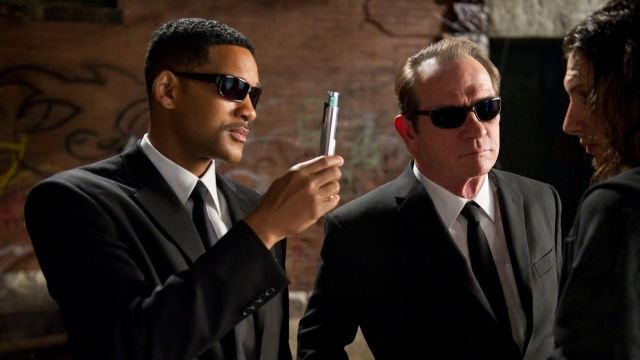
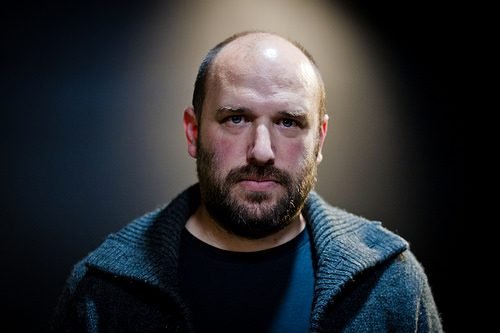
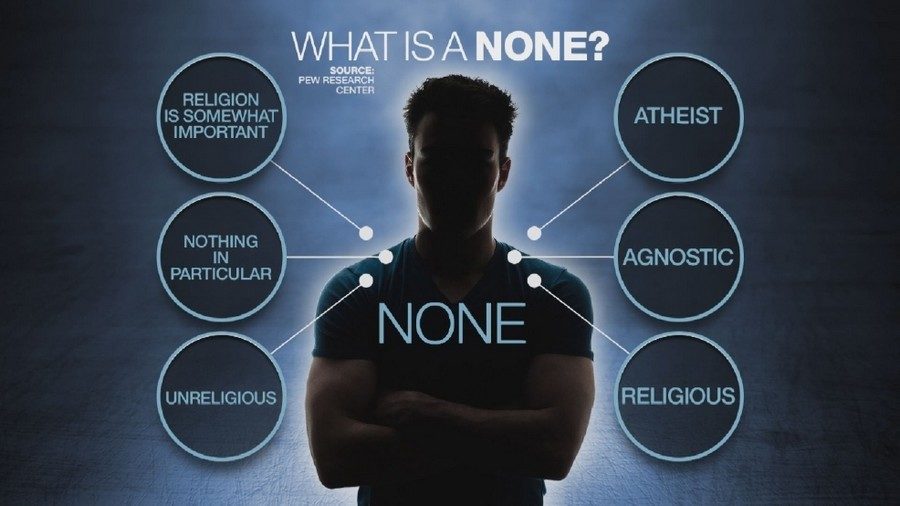


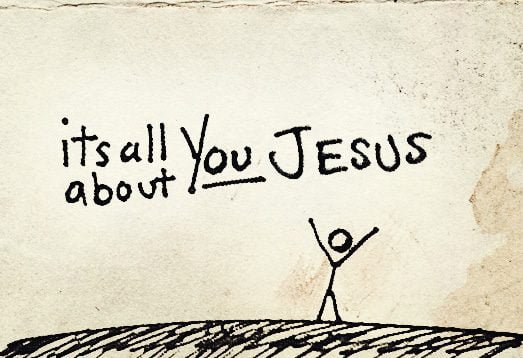

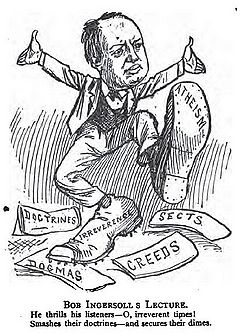 Let us be honest. Let us preserve the veracity of our souls. Let education commence in the cradle—in the lap of the loving mother. This is the first school. The teacher, the mother, should be absolutely honest.
Let us be honest. Let us preserve the veracity of our souls. Let education commence in the cradle—in the lap of the loving mother. This is the first school. The teacher, the mother, should be absolutely honest.